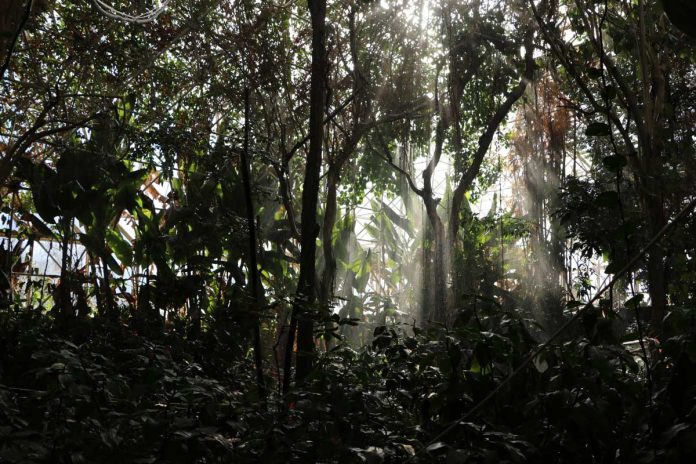A team of 80 international research scientists of University of Arizona have completed an unparalleled experiment. They have experimented with world’s only enclosed rainforest for months and enforced drought and recovery. The research paper has been published in the journal Science.
This research revealed the ability of the forests surrounding the rainforest’s ability to capture and store carbon dioxide from the atmosphere as climate change continues. But, a web of water-use strategies and soil interactions have been found by the researchers that will help the forest to stay stable during extreme drought.
Laura Meredith, an assistant professor in the School of Natural Resources and the Environment in the College of Agriculture and Life Sciences has said that the rainforest is resilient to the drought.
The scientists have conducted a full ecosystem drought in a particular area of the rainforest. They have named the experiment as Water, Atmosphere and Life Dynamics or WALD.
The scientists have tried to collect every bit of data throughout the drought and rewet process. To record the data, the scientists have placed 2 miles of Teflon tubing and 133 sensors. It has covered 3-acre rainforest in total. The sensors have everything starting from carbon pools in the atmosphere to deep-water soil processes.
Scientists used stable isotopes to capture the movements of carbon and water in the time of drought and in normal scenario. They have noticed all plants didn’t respond to drought in the same way. Some plants were too sensitive and they responded immediately to drought by slowing their critical carbon and water cycling to be safe. Some plants were tolerant to drought and maintained their function in risky situations.
The scientists have categorized the plants by their reaction to drought. The researchers were astonished to see that large trees are most drought-sensitive as they soke water from topsoil and topsoil dried out first in the time of drought.

